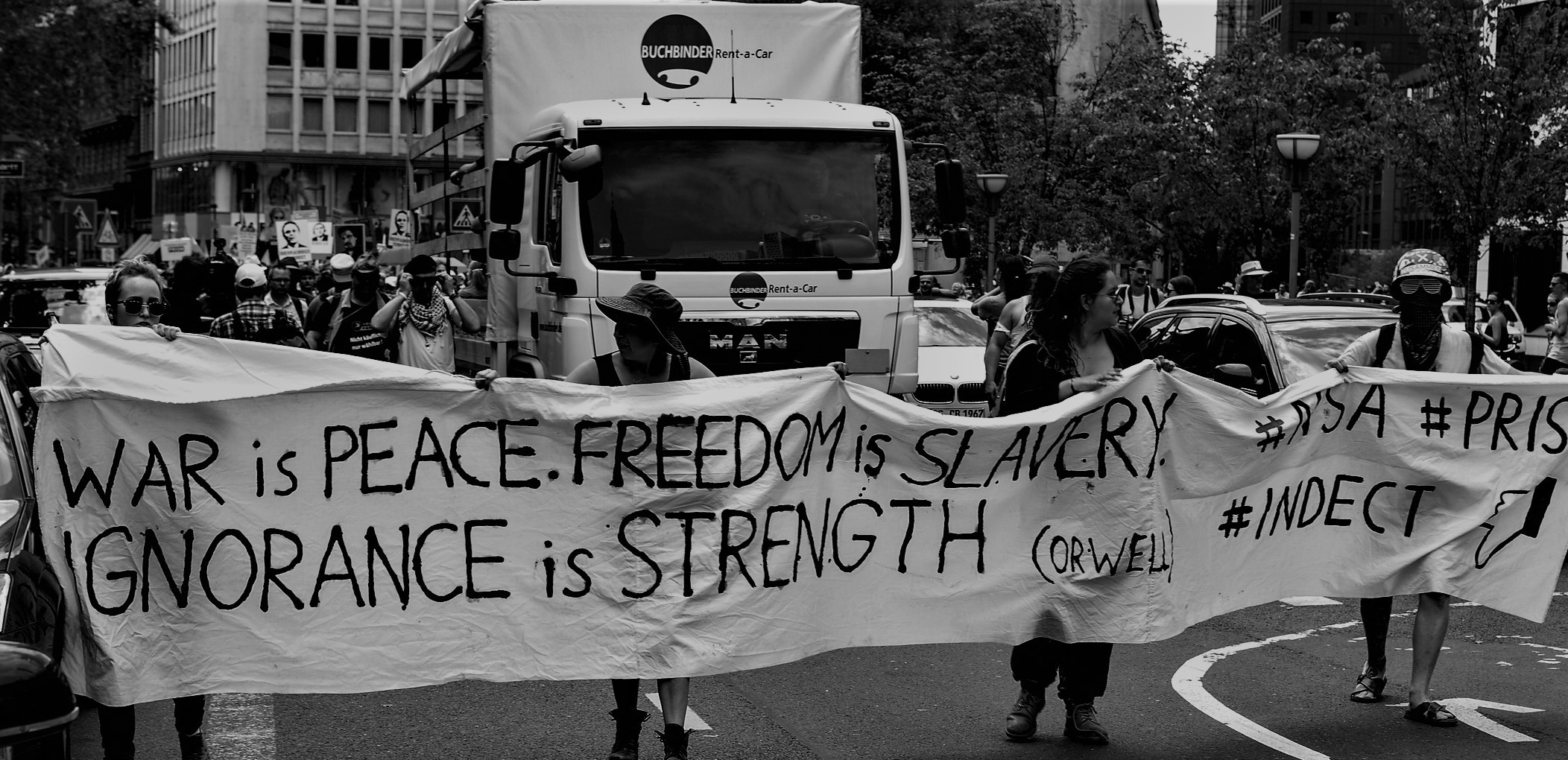
Why The Left is Orwellian
The events of recent weeks have thrust George Orwell to the forefront of America’s consciousness. Conservatives have warned of the allegedly “Orwellian” character of efforts to “cancel” Donald Trump and Josh Hawley. Liberals have mocked these complaints, holding that they depend on a very loose understanding of Orwell’s ideas. Sales of Orwell’s classic, “1984,” have skyrocketed as ordinary citizens try to sort it all out.
In the present controversy, the liberals have a point. Losing your Twitter account or your book contract are not exactly the same as having Big Brother’s boot in your face forever. The present controversy aside, however, there are several important (and frightening) respects in which the American left is Orwellian in character. Today’s left is a lot like “the Party” that rules Orwell’s totalitarian dystopia.
In “1984,” the Party fosters a kind of political monomania in its adherents. Party members are expected to place all of their deeds, words, and thoughts at the service of the Party and its ideology. A good party member has no topics of conversation other than the “principles of Ingsoc” — or English Socialism.
In contrast, the proles — the proletarians, the ordinary drudges who take no part in ruling the society — live their lives according to more traditional human standards. Their only political passion is simple patriotism. Their idea of goodness is to care for and be loyal to each other. Yet the work’s hero, Winston Smith, recognizes that the proles are more human than the Party members, and that “if there is hope” for the future, “it lies in the proles.”
The sympathies of today’s left seem to run more in the direction of the Party than the proles. For the left, people who live according to customary, non-ideological standards — who just take care of themselves, their families, and their neighbors — are not necessarily good citizens. Indeed, they may be condemned as “selfish” or worse if they do not join the left’s crusade for “social justice.”
The Party in “1984” seeks to make its members not only single-minded but also fanatical. Its members must experience a deep emotional, even hysterical, commitment to the ideology. Hence the use of the Two Minutes Hate in order to stir up the feelings of fear, anger, and self-righteousness on which Party solidarity depends. As a result, ordinary members of the Party turn out to be absolutely “bigoted” and intolerant — “swallowers of slogans,” “amateur spies and nosers out of unorthodoxy.” Today, if you want to encounter this kind of person in real life, you need only venture into the left wing of the American Twitterverse and observe the energetic efforts to discover, denounce, dox, and cancel ideological dissidents.
Orwell’s Party is so demanding of ideological conformity that it is not even safe to appear to have reservations. To “wear an improper expression on your face . . . was itself a punishable offense. There was even a word for it in Newspeak: facecrime, it was called.” Does this sound familiar? Ask Nick Sandman.
In “1984,” the Party seeks not only to deter dissent but to make it impossible by cutting off all access to alternative ideas. Thus the past is demonized: “The centuries of capitalism were held to have produced nothing of any value.” Thus the Party invents a new language — Newspeak — the aim of which is to render the thought of the past absolutely inaccessible, to make it impossible to think anything except what the Party approves.
Once again, one is struck by the kinship between Orwell’s Party and America’s left. Because of its uncritical devotion to the idea of progress, the left has to view our past as decisively inferior to our present. The left routinely paints our history as nothing but a record of oppression, with nothing wise from which we can learn and nothing precious which we must preserve. And it is of course the left that is continually inventing new words to express or create new social realities, and continually declaring to be “offensive” and forbidden old words that had been thought to be unexceptionable. And the effect of these moves is the same in Orwell’s fiction and in our reality: to narrow the range of thought and increase the power of those who control the present discourse.
Perhaps the most bizarre and egregious element of the Party’s mind control is its use of self-contradictory slogans: “War is Peace!” “Freedom is Slavery!” The effect and intention of such slogans is to induce complete mental slavishness, to make members of the Party accept whatever it tells them, however absurd it may be.
Of course, political sloganeering is not an exclusive preserve of the left. Slogans are part of mass democracy, and the right makes use of them as freely as any other political movement. Thus Reagan spoke of “peace through strength,” and Trump would say that “if you don’t have a border, you don’t have a country.” These kinds of slogans, however, are extreme simplifications of more sophisticated lines of thought that are at least coherent and rooted in reality. For slogans that really offend common sense you have to turn to the left. It is the left, for example, that will tell you without blushing — and, indeed, with a kind of insane conviction — that “silence is violence.”
We don’t need to panic, but we should be worried. America does not look exactly like Orwell’s “1984” because the left does not control all of our institutions. But there can be little doubt what the country would look like if they did.
* * *
Originally published by Real Clear Policy.

 Twitter
Twitter
 Facebook
Facebook